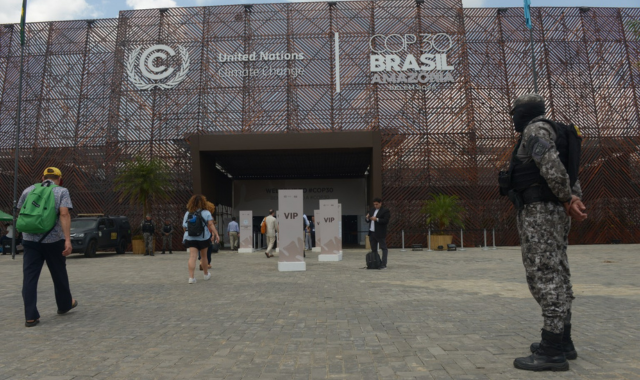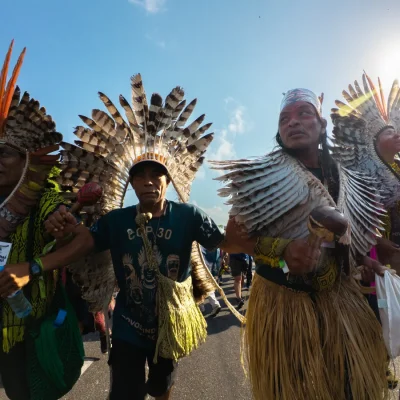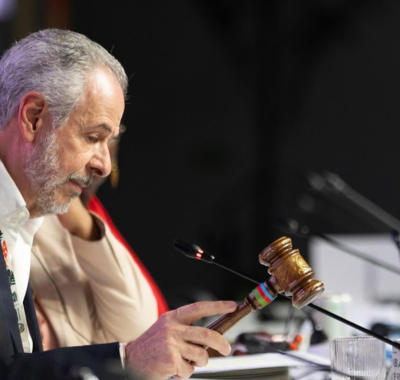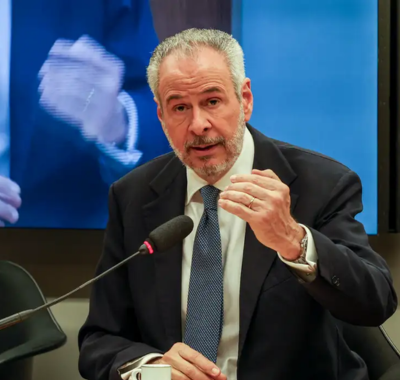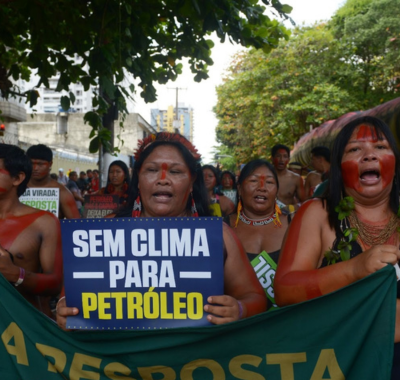Six countries announce US$ 58.5 million donation to Adaptation Fund
Spain has made the largest donation so far – US$ 23.2 million; Germany is expected to be the seventh country to announce a contribution, as it has traditionally been the largest funder since the Fund’s creation.
Author: Meghie Rodrigues
Translation: Roberto Cataldo/Verso Tradutores
The final week of the 30th UN Climate Change Conference (COP30) began with the announcement of new contributions to the Adaptation Fund. During the high-level dialogue on adaptation funding held on Monday morning (17), Belgium, Iceland, Ireland, Luxembourg, Spain and Sweden confirmed total donations of US$ 58.5 million. Spain has pledged US$ 23.2 million – the largest donation so far – while Iceland made the smallest contribution, with US$ 700,000.
High-level meetings usually gather authorities from countries attending the COP and are held in every edition of the event. Today, a specific session on financing and adaptation took place, but there are still pending issues regarding the Adaptation Fund. “Germany announced that it will also contribute but has not provided a figure yet. We are eagerly awaiting for the Minister [Katherina Reiche, of Economic Affairs and Energy] to speak at this afternoon’s high-level session,” says Joe Thwaites, senior international climate finance advocate at the Natural Resources Defense Council (NRDC), a New York City-based non-profit environmental organization.
The expectation is not baseless: Germany has been traditionally and cumulatively the Adaptation Fund’s largest donor. Operational since 2009, the Fund was created by the United Nations Framework Convention on Climate Change (UNFCCC) in 2001 to support projects that boost the resilience of countries vulnerable to climate change.
“They have already donated around US$700 million to the Fund throughout its history and, in recent times, they have been donating an average of US$60 million annually,” Thwaites adds. In 2021, Germany donated US$58.2 million to the Adaptation Fund; from 2022 to 2024, it donated over US$60 million per year. “We expect the country to make a contribution of similar proportions this year,” he adds.
Throughout its history, the Adaptation Fund has received approximately US$1.7 billion, with most contributions occurring in the last decade. Even though the announced US$58.5 million is a small fraction of the total budget allocated every year by developed countries to adaptation in developing nations – about US$27 billion – the Adaptation Fund is considered effective.
“The Adaptation Fund’s money manages to reach projects that larger funds miss along the way. Its funding model – based on granting scholarships for projects – is a way to make sure that the money actually reaches those who need it most and are making things happen,” says Thwaite.
The fact is that donations to the Adaptation Fund have been decreasing in recent years – they reached US$356 million in 2021; US$243 million in 2022; US$192 million in 2023; and only US$133 million in 2024.
If US$58.5 million represents only a small fraction of the US$27 billion annually allocated to adaptation, this amount is even further from meeting the real needs of the countries that are most vulnerable to climate change. According to the United Nations Development Program (UNDP), there is a deficit of about US$310 billion a year.
What else is to be expected for the week?
High-level meetings with countries’ ministers are taking place this week. Experts interviewed by InfoAmazonia expect the summit negotiations to unlock some of the points that are still stalled, such as the set of indicators to measure the success of the implementation of climate adaptation actions.
To begin with, the challenge is to reach a consensus on what “success” is about when discussing the means for implementing these actions. “And this is especially relevant to financing of adaptation actions,” says Gabrielle Swaby, senior manager of the World Resources Institute’s Allied for Climate Transformation by 2025 (ACT2025) program.
Last week’s technical debates have already laid some groundwork for advancing negotiations: the success indicators for the Global Adaptation Goal will be voluntary, they will depend on the circumstances of each country, and they cannot be used as a condition for vulnerable nations to access climate finance.
Another challenge expected to be solved this week, Swaby explains, concerns the total amount that countries will allocate to climate adaptation, which is not limited to the Adaptation Fund – just one of several finance mechanisms in this area. Observers are waiting to see “how countries will emerge from COP26 with a commitment to scaling up adaptation financing, particularly as the commitment made at COP26 in Glasgow [in 2021] to double funds for adaptation from $20 billion to $40 billion expires this year,” says Swaby.
Anna Cárcamo, a climate policy expert at Greenpeace Brazil, highlights three main topics where progress is expected from coordination between countries: public financing from developed countries to developing countries; increased ambition regarding Nationally Determined Contributions (NDCs); and adoption and implementation of more National Adaptation Plans (NAPs).
“We hope that countries will be able to make progress and reach a consensus on tripling adaptation financing, on the need to increase climate ambition in NDCs, and on further reducing emissions. Now that the talks are moving to ministerial level, ministers can be more flexible in their stances,” she explains.
—
This report was produced by InfoAmazonia through the Collaborative Socio-environmental Coverage of COP 30. Read the original report at: https://infoamazonia.org/2025/11/17/seis-paises-anunciam-doacao-de-us-585-milhoes-para-fundo-de-adaptacao/

